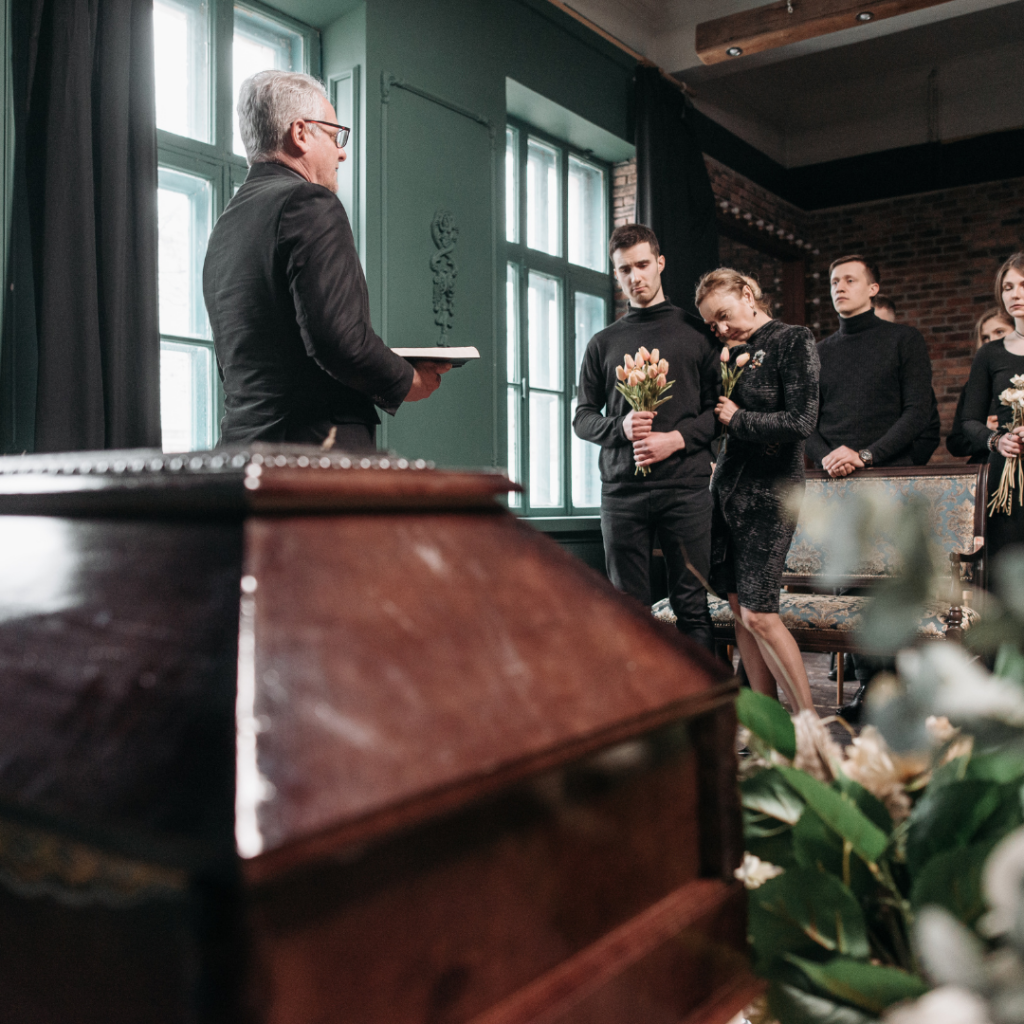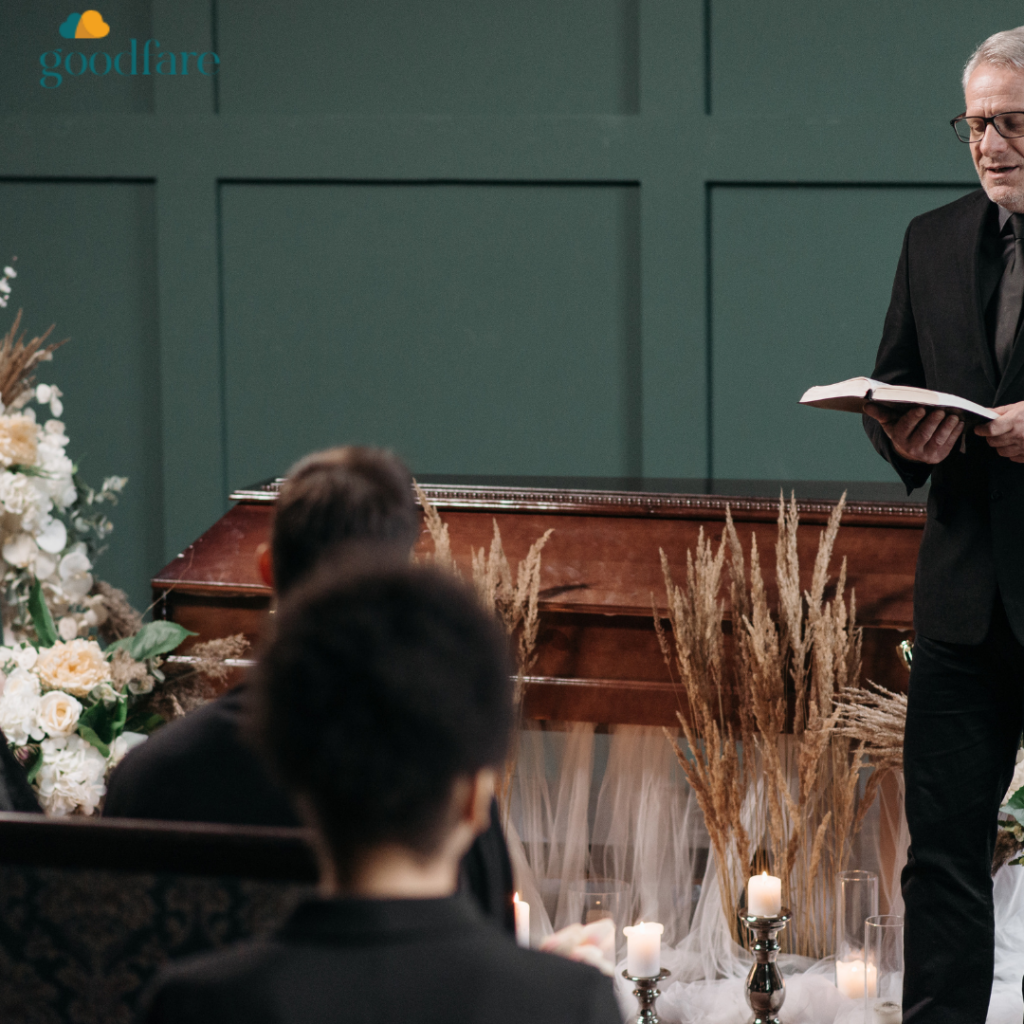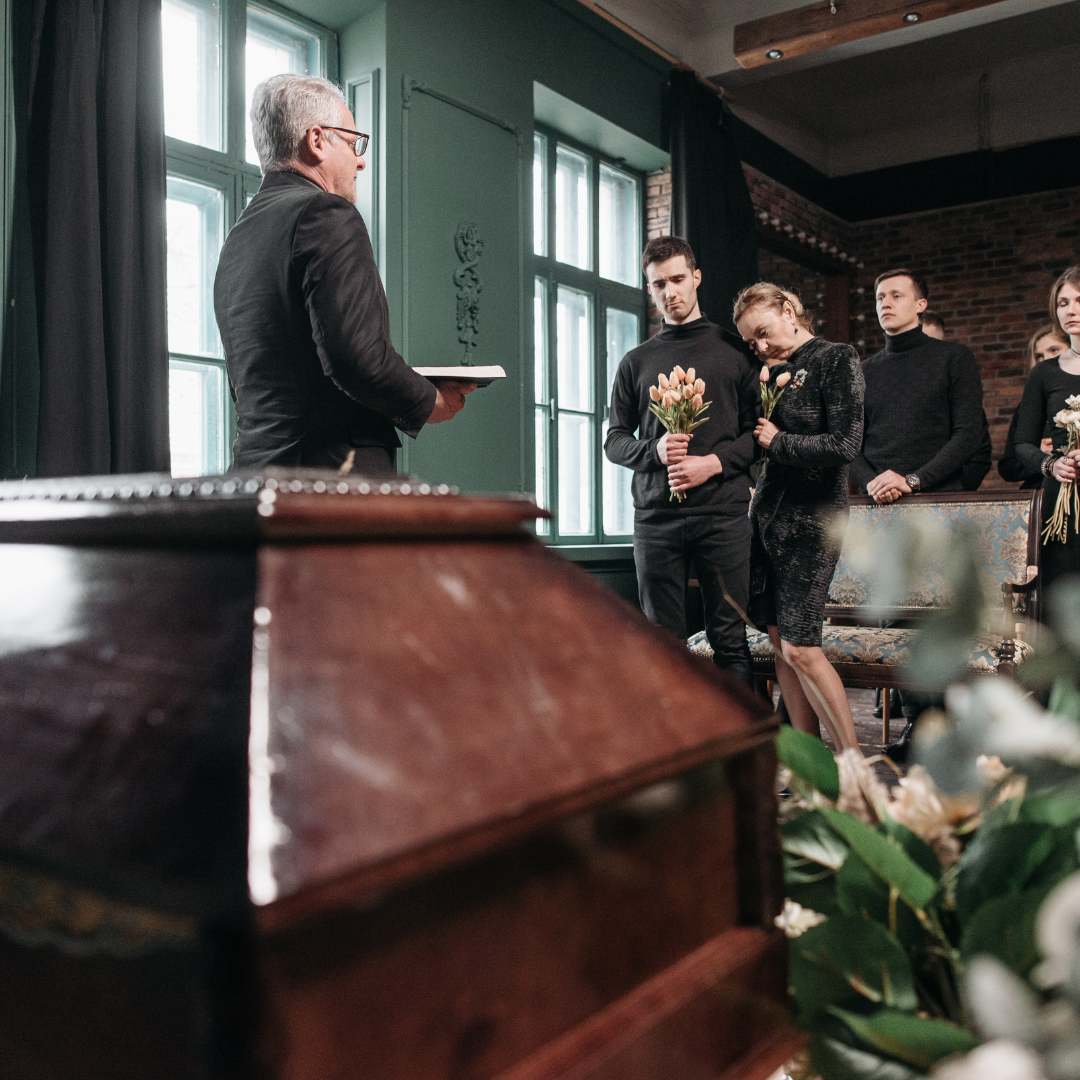What Does a Celebrant Do At a Funeral?
Role of a Funeral Celebrant
Celebrants are trained to design and lead ceremonies that honor the life and legacy of the departed. They offer an alternative to conventional services, allowing for a more customized and meaningful tribute.
The rise in popularity of celebrants is driven by a desire for ceremonies that are tailored to individual preferences, cultural backgrounds, and personal stories. This trend reflects a broader move towards personalization in many aspects of life, including how we say our final goodbyes.

By choosing a celebrant, families can ensure that the service is a true reflection of their loved one’s life, incorporating elements that hold personal significance. Whether it’s through music, readings, or personal anecdotes, celebrants work closely with families to craft a ceremony that is both respectful and heartfelt.
What is a Funeral Celebrant and Their General Duties?
A funeral celebrant is a professional who specializes in creating and conducting funeral services that are personalized to reflect the life, values, and wishes of the deceased and their family.
Unlike clergy or religious leaders, celebrants are not bound by specific religious doctrines, allowing them to offer more flexible and inclusive ceremonies. This makes them an ideal choice for secular, interfaith, or non-traditional funerals.
General Duties of a Funeral Celebrant
- Meeting with the Family: One of the primary duties of a celebrant is to meet with the family of the deceased to understand their wishes and gather information about the life and character of their loved one. This helps the celebrant to create a service that truly honors and reflects the individual.
- Creating a Personalized Service: Based on the information gathered from the family, the celebrant designs a customized ceremony. This can include selecting readings, music, and tributes that hold special meaning. The celebrant ensures that all elements of the service are cohesive and align with the family’s preferences.
- Writing and Delivering the Eulogy: The celebrant often writes and delivers the eulogy, highlighting significant aspects of the deceased’s life, their achievements, and the impact they had on others. This part of the service is crafted to celebrate the individual’s unique journey and personality.
- Conducting the Ceremony: On the day of the funeral, the celebrant officiates the ceremony, guiding attendees through the proceedings with compassion and respect. They ensure that the service runs smoothly, providing a comforting presence for the family and guests.
- Post-Service Support: After the funeral, celebrants may offer support to the family, providing resources for grief counseling or helping with any additional arrangements. This ongoing support can be invaluable during a difficult time.
Benefits of Choosing a Funeral Celebrant
Opting for a funeral celebrant offers numerous advantages, particularly in terms of personalization and flexibility.
Celebrants are skilled in crafting ceremonies that are tailored to the specific needs and preferences of the family, making the service a unique reflection of the deceased’s life.
Personalization and Customization
- Reflecting Individuality: Celebrants work closely with families to create a service that mirrors the personality and values of the deceased. This could include specific rituals, favorite music, or personal stories that highlight the individual’s life journey.
- Flexibility: Unlike traditional religious services, celebrant-led funerals are not bound by specific rites or doctrines. This allows for a greater degree of flexibility in how the ceremony is conducted, accommodating various cultural, spiritual, or secular preferences.
- Inclusive Ceremonies: Celebrants are adept at catering to diverse needs, ensuring that all aspects of the service are respectful of different beliefs and traditions. This inclusivity can be particularly important for families with mixed or non-religious backgrounds.
Roles and Responsibilities of a Funeral Celebrant
- Planning the Service: Celebrants take on the responsibility of planning every aspect of the funeral service. This includes coordinating with venues, organizing logistics, and ensuring that all elements of the ceremony are in place.
- Conducting the Service: On the day of the funeral, the Funeral celebrant leads the ceremony, guiding attendees through the service with sensitivity and professionalism. They help to create a calm and supportive atmosphere, making the event a meaningful experience for all involved.
- Post-Service Support: After the service, celebrants may continue to support the family, offering resources and advice for coping with grief. This ongoing support can be a significant source of comfort during a challenging time.
Essential Skills and Qualities of a Good Celebrant

- Empathy and Compassion: A good celebrant must be empathetic, able to understand and share the feelings of the family, providing comfort and support.
- Excellent Communication: Strong public speaking skills are essential for delivering eulogies and conducting the ceremony effectively.
- Organizational Skills: Planning a funeral requires meticulous attention to detail and the ability to manage various logistical elements smoothly.
Choosing the Right Celebrant
- Research and Recommendations: Start by researching celebrants in your area and seeking recommendations from friends or funeral directors. Reading reviews and testimonials can also provide valuable insights.
- Interviewing Candidates: When selecting a celebrant, it’s important to meet with them to discuss your needs and expectations. Ask about their experience, approach to personalization, and how they handle specific requests.
- Assessing Compatibility: Ensure that the celebrant’s style and approach align with your vision for the service. A good celebrant should be someone who you feel comfortable with and who understands your wishes.
Conclusion
A funeral celebrant can play a vital role in creating a meaningful and personalized funeral service. Their ability to tailor the ceremony to reflect the life and values of the deceased provides a unique and comforting tribute.
By knowing the duties and benefits of a celebrant, and knowing how to choose the right one, families can ensure that their loved one’s farewell is both respectful and memorable.

Leave a Comment